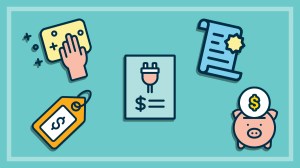
1.6 million women subject to economic abuse by partners
Fact-checked
Fact-checked
Checked for accuracy by our qualified fact-checkers and verifiers. Find out more about fact-checking at CHOICE

Numbers from the Australian Bureau of Statistics (ABS) published earlier this year paint a disturbing picture of the economic abuse of women in Australia at the hands of former or current partners.
The research cites numerous examples of the types of abuse, much of it occurring through the everyday financial mechanisms used by the rest of us.
From racking up debt in the victim’s name to refusing to pay property settlements or child support, the intention is often to control or punish someone after a relationship has broken down. And most often, the perpetrator is male and the victim female.
To manipulate and maintain control, perpetrators sometimes prevent victims from working, studying, or even opening a bank account
In all, around 1.6 million women in Australia have been subject to economic abuse, mostly through “sabotaging” behaviours, which can include damaging or destroying property as well as refusing to pay when money is owed.
Then there’s outright financial control, where the perpetrator controls access to money and blocks the way to financial knowledge and decision making.
To manipulate and maintain control, perpetrators sometimes prevent victims from working, studying, or even opening a bank account.
‘Ugly realities seen every day’
Livia La Rocca is general manager of safety and resilience programs at Good Shepherd Australia New Zealand, a charity working to support women and girls experiencing abuse and disadvantage.
La Rocca says, “These unseen tactics perpetuate the harm women experience as a result of family and domestic violence, subject women to ongoing poverty, and create lasting harms, not only for her, but also for children. It is nigh impossible for women to leave an abusive situation when they have no money, no assets or no safe home to go to.”
The organisation says the new ABS data “reflects the ugly realities seen by Good Shepherd every day”.
It is nigh impossible for women to leave an abusive situation when they have no money, no assets or no safe home to go to
Livia La Rocca of Good Shepherd
In some cases, women face “coerced debt”, where a former partner racks up debt in the victim’s name by using her credit card or other accounts.
More than 80% of victim/survivors of domestic violence in Good Shepherd programs have also experienced economic abuse, the organisation reports, while 67% of women who stay in the organisation’s refuges have no income when they arrive.
‘Urgent need for reform’
The ABS data breaks types of economic abuse into categories and indicates the percentage of women who are affected in each.
For example, 32% of financial abuse victims have had child support payments withheld by their ex-partners.
Our own research shows that buy now, pay later is being used to perpetuate financial exploitation
Dr Jozica Kutin of Good Shepherd
Dr Jozica Kutin, head of research and evaluation at Good Shepherd says, “This is the first time these issues have been measured at a population level, and the data shows the need for urgent systematic reform on multiple fronts. Our own research shows that buy now, pay later is being used to perpetuate financial exploitation.”
One option for women experiencing economic abuse is Good Shepherd’s Financial Independence Hub, which the organisation says has helped more than 6000 people become financially independent and gain control of their financial situation.
The organisation’s family violence services are dedicated to supporting victims on their path to independence and include providing refuge and therapeutic support as well as empowerment programs in partnership with government and corporations.
This article mentions partner and family financial abuse. As well as the resources mentioned in this article, if you or anyone you know needs support, you can call the national sexual assault, domestic or family violence hotline on 1800 737 732, or visit 1800RESPECT.org.au. MensLine Australia is a telephone and online counselling service for men, on 1300 78 99 78 or mensline.org.au. And for free, confidential and independent financial advice you can call the National Debt Helpline on 1800 007 007.
Related




